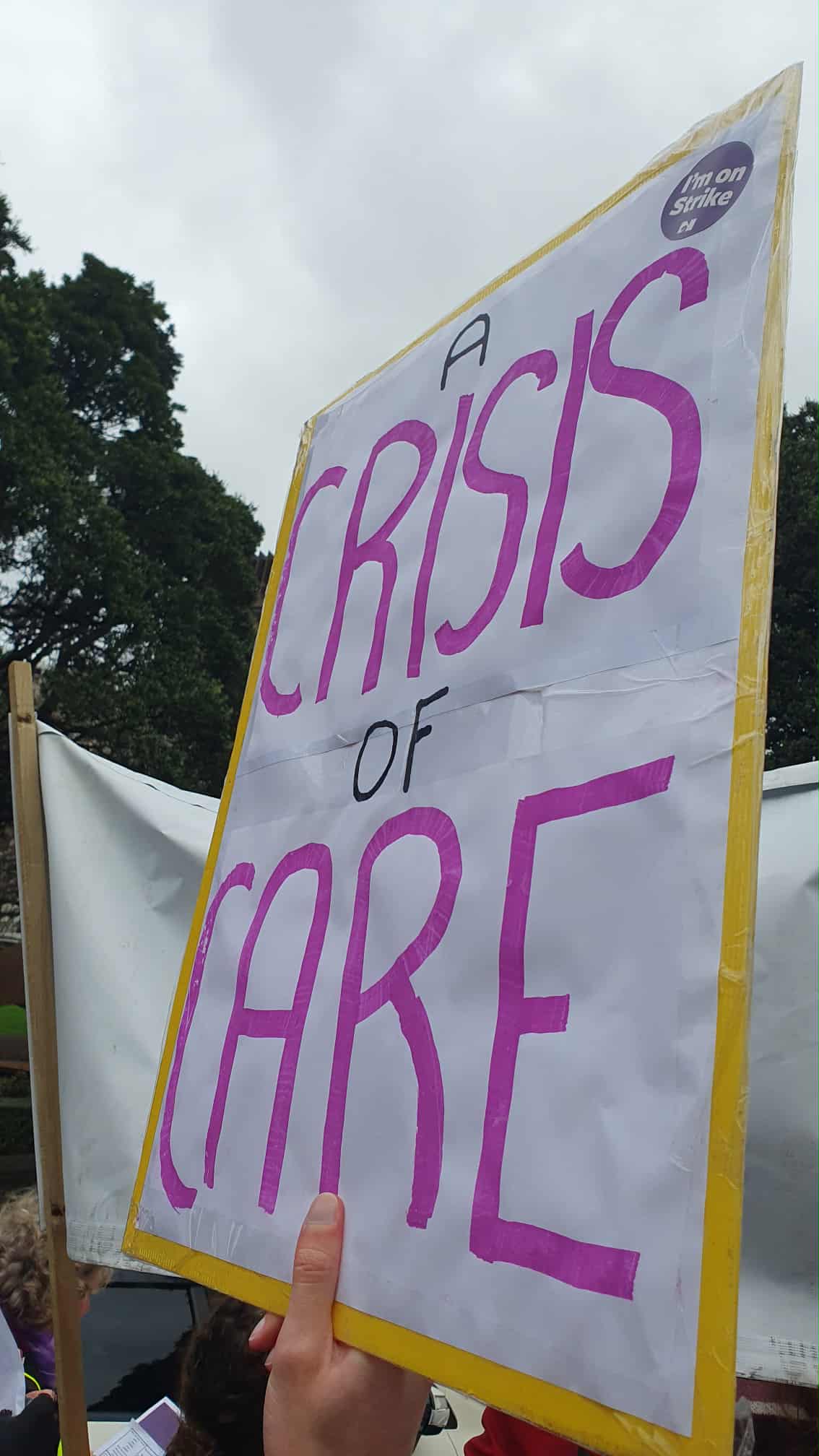In a nauseating spectacle on 19 October Labour’s Megan Woods and David Parker went on air with National’s Judith Collins to announce their cross-party agreement on a change in the law to allow higher-density building development without the need for a consent process. The fact that National are a partner in the Resource Management (Enabling Housing Supply and Other Matters) Amendment Bill makes it highly suspect to any thinking person. Is the proposed law another step to the right by Labour or has Judith Collins somehow lost the plot and inadvertently signed up to a progressive housing policy? I submit that the new proposals are further step along the neoliberal track that Labour was already treading, and it is no wonder that they have National’s support. They are another ‘let the market rip’ non-solution to the housing crisis. They are another concession to the building industry, another kick in the guts of local democracy, and they are seriously dangerous to the living conditions for working-class people in future.
Initially, the amendment affects Level 1 councils, those in the largest urban areas: Auckland, greater Hamilton, Tauranga, Wellington area and Christchurch area. The proposed law will speed up changes that were on their way under the Labour-introduced National Policy Statement – Urban Development (NPS-UD) that is forcing local council’s to change their district plans to allow lower standards of residential amenity. The government calls them ‘medium density’ standards, which makes them sound moderate; however the facts speak for themselves. When the Bill is passed into law local councils will have to change their district plans to allow housing development that meets the following standards without needing a resource consent.
These are the standards that that the bourgeoisie would have for housing the working class: minimal outdoor space, low levels of natural light, inadequate privacy, and, in many cases, units with little internal space. With up to 60 percent impervious surfacing allowed, any ecological claims for these standards are undermined. Permeable surfaces allow rainwater to seep into the ground where it is stored and slowly released into streams and taken up by vegetation. Impervious surface runoff is typically rapidly disposed of into storm drains. When piped to streams stormwater is a case of damaging feast or famine from the point of view of aquatic environmental health.
Labour’s fundamental approach to housing supply is to look to the private market, despite the private developers holding the government to ransom. The developers refused to cooperate with Kiwibuild. They have constantly lobbied for the development of greenfield land; they have lobbied for not bearing the cost of the infrastructure serving their development sites; they are always pushing to maximise the highest number of units on brownfield sites; and they constantly complain about the democratic aspects of the Resource Management Act, although much of that has been whittled away over the years.
Labour’s response to the development business has been to concede over and over again. It brought in the Streamlined Planning Process to fast track, at the expense of democratic procedure, implementation of the NPS-UD which is forcing council’s to free up rural land for urban sprawl and to allow low-quality housing in existing residential areas.
Democratic local government is anathema to neoliberal orthodoxy. The style of neoliberal governments, whether centre-left of rightwing, has been to treat local government with distain. Councils were not told of, let alone consulted on, the new proposals. Local government was once seen as essential to the development of private capitalism by providing the community services and regulation businesses needed. Local government still provides a large range of services, but being a democratic part of the state machinery it is offensive to neoliberal thinking.
Democracy in local government has been effectively neutered when it comes to controlling development. These days councillors are liable to shirk responsibility by handing over hearings to one or more unelected ‘commissioners’. The hearings process has become dominated by lawyers and professionals. Documentary material runs to thousands of pages. The ordinary member of the community is effectively powerless in this bureaucratic environment.
Under the Resource Management (Enabling Housing Supply and Other Matters) Amendment Bill now before Parliament, the attack on democracy is taken even further. We have already had the undemocratic Streamlined Planning Process, now the government proposes the Intensification Streamlined Planning Process so that those Level 1 councils can get their district plans amended to incorporate those ‘medium density’ standards in double quick time to come into effect from August 2022. Under the ISSP the local council operates as an administrative body rather than as a decision-maker in the plan change process. Hearings are before an independent panel; i.e. unelected establishment figures. The panel makes a recommendation to the local council. If the council agrees to the plan change the decision goes through. If the council disagrees, the decision is taken by the Minister for the Environment. What kind of democracy is that?
Remember, all this undemocratic nonsense is because of a Labour government willing to act as a doormat to the development industry. There is an alternative to get homes built, and that is for the government to provide state housing directly, in conjunction with public transport, schools and services, having first genuinely consulted the local community concerned. There is no need for low- quality housing. On the contrary, the state should lead the way in providing a variety of high-quality home types in accordance with community consultation results. The state should lead the way in green building techniques and the use of solar power. Currently, the government’s decidedly non-green and low-quality state house building programme stands as a poor relation to the main effort of trying to get private developments underway. For the four year period 2021-2024 the government is aiming for just 6,000 state homes, an average of a mere 1,500 a year. This is while, as of June 2021, there were over 24,000 applications for state housing on the waiting list.









